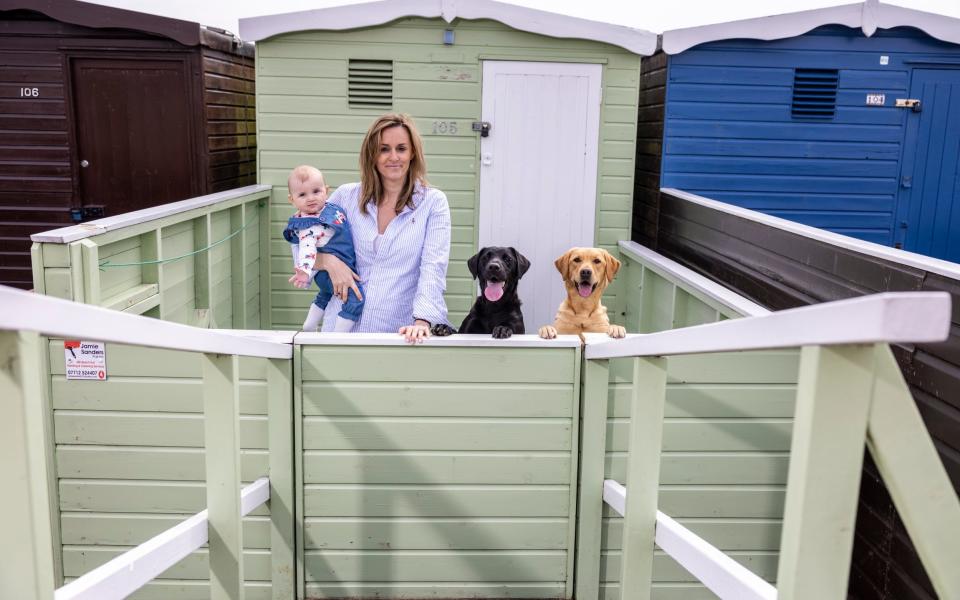The basic beach hut is now a better investment than a three-bedroom house

Prices for prized beach huts along Britain's coastal hotspots have doubled in the past two years with values rising even faster than the red-hot housing market.
Lucky owners have sold their sandy shacks for huge profits after pandemic lockdowns boosted demand. The average asking price has risen by almost £11,000, or 28pc, in the past year and stands at £50,336, according to property website Rightmove. This surge has dwarfed the increase in average property prices – which climbed by 10pc in the same period.
Prices have almost doubled since 2019, when the average hut went on the market for just £25,999. Desperate buyers looking for a coastal convenience have been locked into bidding wars over the nostalgic seaside shacks.
Demand for the roughly 20,000 beach huts in Britain soared thanks to years of foreign travel restrictions and lockdowns – even though overnight stays in the huts are often prohibited and many do not have electricity or toilet facilities. The number of beach huts has remained static for years as archaic laws limit how many can be added alongside Britain's coast – with the scarcity factor boosting prices.
Tim Bannister of Rightmove said: "Beach huts have become increasingly sought after over the past couple of years and this has driven prices up. The demand has been so frenzied that some are being sold for hundreds of thousands of pounds."
Last year three beach huts in Mudeford, Dorset, one of those most sought-after areas, sold at asking prices of £325,000 each, higher than the average price of a house in the UK.
James Eniffer, of Sheen’s Estate Agents in Clacton-on-Sea, said there had been a "huge" increase in demand for huts. Waiting lists of prospective buyers and bidding wars has become commonplace.
He said: "Most are selling for their asking price. We often find that once people have a beach hut in the area, they hold onto them for many years for each generation of the family to enjoy."
Felixstowe in Suffolk, Hayling Island off the coast of Portsmouth and Frinton-On-Sea and Walton-on-the-Naze in Essex have been particularly popular with buyers, according to Rightmove. Huts are priced anywhere between £30,000 and £85,000.
A renovated beach hut, complete with kitchen and bathroom, in Hunstanton, Norfolk, is currently on the market for offers in excess of £250,000. Meanwhile a small hut, containing a single dresser, on the seafront at Friars Cliff Beach, on the Isle of Wight, can be bought for just under £100,000.
Leasehold huts require owners to pay an annual license fee or ground rent to the landowner, often the council or an estate owner.

The staycation market boomed last year as closed borders forced holidaymakers to look closer to home for summer trips. Investors turned their attention to beach huts, which can be rented out for anything between £20 a day to thousands of pounds for a month.
Mr Bannister added: "Some buyers will have seen the popularity and growth in house prices in coastal areas over the past two years and have used their beach hut as an additional source of income, renting it out for the summer."
But for other owners, beach huts came into their own during lockdown. Natasha Garton, 38, inherited a hut in Frinton-On-Sea which she shares with her family. "It’s the perfect escape from everyday life, especially with all the life changes that have happened in the past two years. I have a lot of memories there and have become good friends with the other owners.
"You can switch off there on your own, or you can host friends. So it's really the best of both worlds. Our friends ask if they are a good investment and I think they definitely are. I wouldn’t be without one."

 Yahoo Finance
Yahoo Finance 